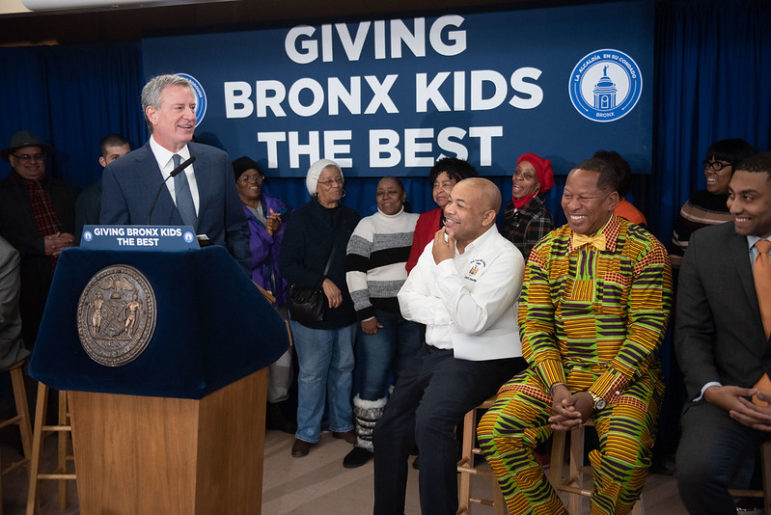
Spring of 2020 and the COVID-19 crisis will go down in history as a period of time that tested New York City and pushed us to our brink—with particularly devastating impacts on low-income families who were already struggling. This summer is shaping up to be similarly difficult, but it’s not too late to ease the burden by protecting the summer programs that provide a lifeline for thousands of low-income youth and their families.
The challenges that our residents are facing—including those disproportionately borne by low-income families like those BronxWorks provides services to in the South Bronx—will not go away when school is “out” and remote learning ends. In fact, the heat and lack of structure will bring with it new challenges. The city must meet this head on with more responsive programming—not cuts.
The first issue is the complete elimination of the Summer Youth Employment Program (SYEP) in the name of budget cuts. This program has an enormous impact on our city, engaging about 75,000 young people ages 14 to 24 every year and giving many of them their first jobs. SYEP helps young people build workplace skills, engenders a sense of responsibility that sets them up for success in future employment, and provides a paycheck. For many families, this extra income is crucial and not available through many internships. This has always been true in areas like the South Bronx that already have higher levels of unemployment and low-wage work, but it is even more necessary in the current economic climate—unemployment claims in the Bronx were up more than 2,220 percent in early April compared to the year prior. Those numbers have only worsened in the weeks since.
We were glad to hear that the City Council recognizes the importance of this program, and is exploring options to restore it—we look forward to seeing those plans.
Summer day camp for elementary and middle school youth is also on the chopping block, which the city funds for free to low-income families. The loss of summer programming is a tough pill for any family to swallow, but for low-income families in particular, it will be devastating.
 CityViews are readers’ opinions, not those of City Limits. Add your voice today!
CityViews are readers’ opinions, not those of City Limits. Add your voice today!
Summer programming is not just a fun alternative to school: It is child care for essential workers. It is educational stimulation that helps mitigate summer learning loss in neighborhoods where most students read below grade level. It is an important source of seasonal employment for thousands of local residents, especially young adults. And for middle school youth in particular, summer programming provides a structured environment and role models at the age when they are most likely to begin engaging in high-risk behaviors.
And finally, while the city’s day camps are still up in the air, additional programs that have historically helped fill summer opportunity gaps have also been eliminated. These include Cornerstone Summer Programming, which provides youth activities in NYCHA community centers in many of our most vulnerable communities—like at BronxWorks Betances Community Center in Mott Haven, where we engage hundreds of young people and their families every year.
The school year ends in just weeks and the city has yet to create a plan for this summer. While we recognize that the ramifications of the pandemic are profound, we cannot expect that young people will stay inside in overcrowded, overheated apartments without remote learning to occupy them—or that our residents will be able to get back to work without child care. Come late June, low-income families will face increasingly difficult choices, and the young people left behind may find unproductive and possibly harmful ways to keep themselves busy.
New York City must create a plan for summer that manages risk while serving youth and families who need it most. To fail them is to fail the future of our city.
Eileen Torres is Executive Director of BronxWorks.








